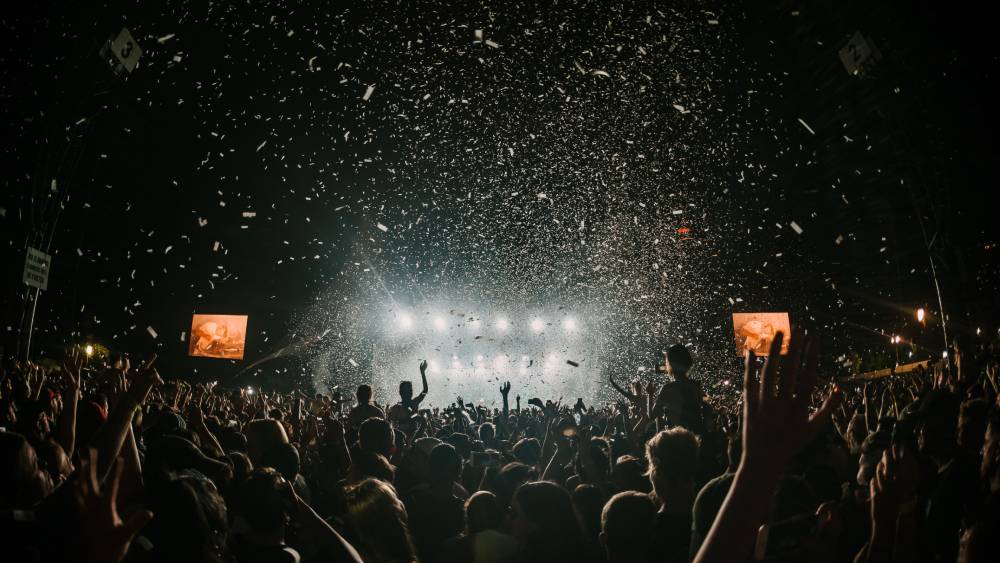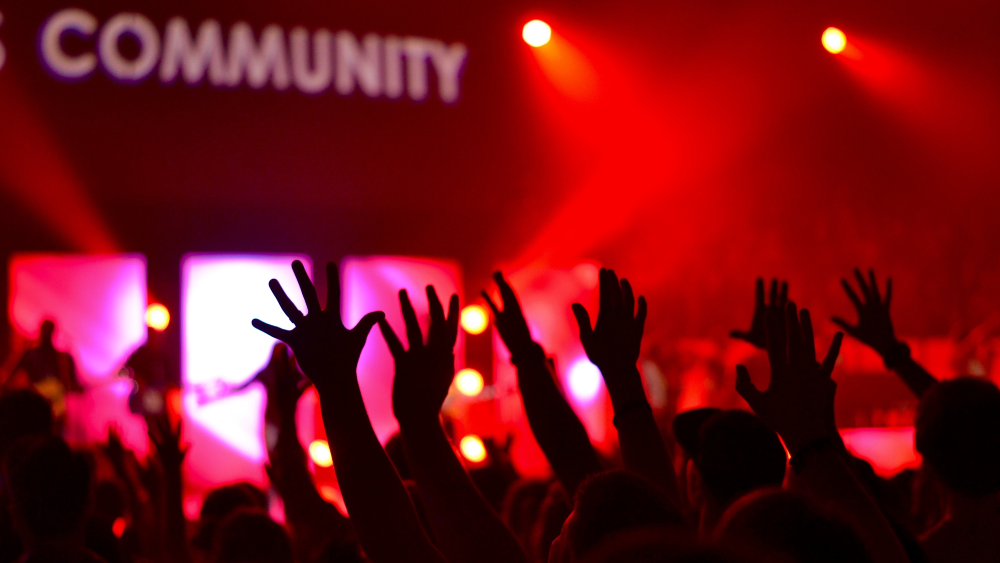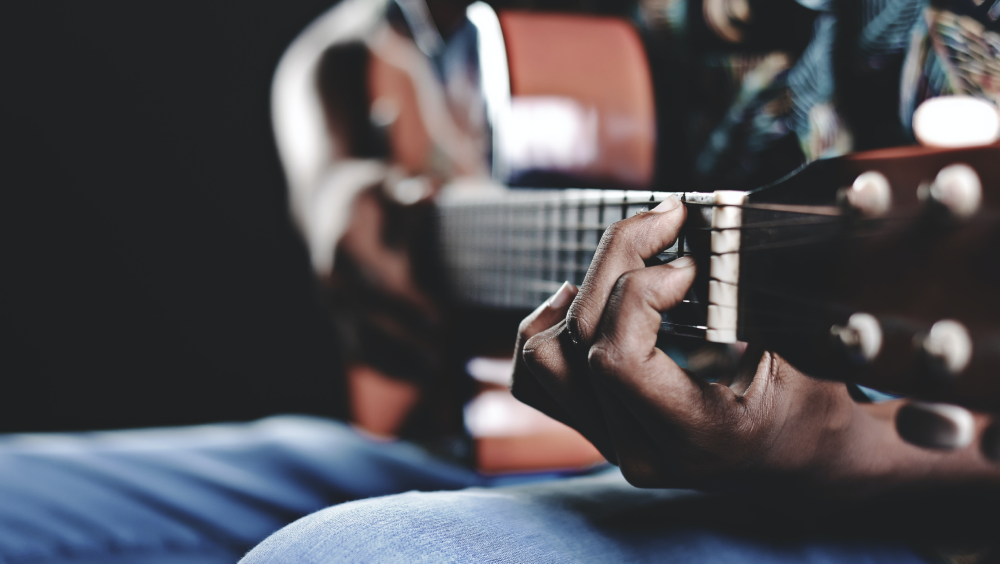Joey runs Woof Music, a management and artist development company which looks after Rizzle Kicks, JUCE!, Rixton and Bang Bang Bang.
He’s also a partner in social media company CYOA, so keeps right up to date on all the latest digital developments affecting emerging acts.
Following his appearance at Young Guns and BBC Introducing’s Amplify the Buzz music careers’ day in London last weekend, we learn his top tips for upcoming artists…
Emerging artists are generally skint. What are the biggest potential revenue streams for acts early on in their career?
It’s very difficult for artists and young managers at the beginning, but I think there’s some good in that. A few years ago people were being signed left, right and centre and were given big cash deals. Those big deals can take away the young artist’s and manager’s hunger to be successful because everybody gets a bit cheque.
In terms of revenue streams, it’s extremely tough out there. You may have the option of doing an early record deal or an early publishing deal – but it’s often one or the other. That can fund you in the interim but a lot of the artists I’ve worked with have needed part time jobs. Or, as a manager, I’ve dished out loans and helped out financially until they do find a revenue stream. It’s a difficult issue without a magical answer. Someone needs to invest at some point. I tend to see those first record and publishing deals as no more than an enabler, allowing you to become a full time musician. No one gets rich from those deals.
How do you go about building a new artist from scratch? What’s the first things you’ll look at?
I think every artist is a bit different and it depends what stage you get involved. I believe strongly in visuals so usually a campaign starts with a music video alongside some supporting music. Then, if the video gets attention, you know you’ve got something to back it up with. You have to create your own internal momentum. With all my acts, I want to get the music and visual in the bag, and then know what the next two or three steps are.
Everything is so fast and immediate now, you need to have lots of things going on at once. My view is you don’t go online until you’ve got something you know is of a decent standard. You don’t want to add to the sea of noise, you need to stand out and make an impact.
We hear loads about the importance of Facebook likes and Twitter followers, but just how important are social media stats at that early stage?
I don’t think they’re that important. Looking at the wider trends in social media, people are pretty sick of Facebook and the platform has changed. It’s no longer that easy to get people to like your page; it’s a much tougher relationship. Twitter seems to be levelling out as well. Instagram is definitely growing but it’s a picture-based platform and not geared towards music.
He’s also a partner in social media company CYOA, so keeps right up to date on all the latest digital developments affecting emerging acts.
Following his appearance at Young Guns and BBC Introducing’s Amplify the Buzz music careers’ day in London last weekend, we learn his top tips for upcoming artists…
Emerging artists are generally skint. What are the biggest potential revenue streams for acts early on in their career?
It’s very difficult for artists and young managers at the beginning, but I think there’s some good in that. A few years ago people were being signed left, right and centre and were given big cash deals. Those big deals can take away the young artist’s and manager’s hunger to be successful because everybody gets a bit cheque.
In terms of revenue streams, it’s extremely tough out there. You may have the option of doing an early record deal or an early publishing deal – but it’s often one or the other. That can fund you in the interim but a lot of the artists I’ve worked with have needed part time jobs. Or, as a manager, I’ve dished out loans and helped out financially until they do find a revenue stream. It’s a difficult issue without a magical answer. Someone needs to invest at some point. I tend to see those first record and publishing deals as no more than an enabler, allowing you to become a full time musician. No one gets rich from those deals.
How do you go about building a new artist from scratch? What’s the first things you’ll look at?
I think every artist is a bit different and it depends what stage you get involved. I believe strongly in visuals so usually a campaign starts with a music video alongside some supporting music. Then, if the video gets attention, you know you’ve got something to back it up with. You have to create your own internal momentum. With all my acts, I want to get the music and visual in the bag, and then know what the next two or three steps are.
Everything is so fast and immediate now, you need to have lots of things going on at once. My view is you don’t go online until you’ve got something you know is of a decent standard. You don’t want to add to the sea of noise, you need to stand out and make an impact.
The biggest blunder you can make is playing live too early...
We hear loads about the importance of Facebook likes and Twitter followers, but just how important are social media stats at that early stage?
I don’t think they’re that important. Looking at the wider trends in social media, people are pretty sick of Facebook and the platform has changed. It’s no longer that easy to get people to like your page; it’s a much tougher relationship. Twitter seems to be levelling out as well. Instagram is definitely growing but it’s a picture-based platform and not geared towards music.
Social media stats can be an excuse for the media to ignore something, but I think if something is good enough, people don’t mind about the stats. People shouldn’t judge music on the numbers. If something’s really good, but it’s still super early for the artist, they’re not going to have a huge fan base.
About three or four years ago people were a lot newer to social media so they liked, followed and engaged more freely. Now, people unfollow more. They’ve decided they don’t need to follow 500 people on Twitter and they whittle down their activity.
People’s commitment on these platforms is much harder to garner than it once was a few years ago when things were fresh and new. No one wants to be overloaded with information any more so they’re much more selective.
So how has Facebook changed over recent months?
As it’s become monetised you have to be more careful about what you put up. Previously you could post pretty much what you wanted and it would be treated evenly. Now, if you post content that is outside Facebook you will get a smaller push around the network. External links don’t really work for that platform anymore.
Also, the things the public engage with on there are pictures, audio and video. The way we posted 18 months ago is very different to how we should post now. There’s an ongoing evolution of what people engage with and it’s getting harder to grab attention these days.
Across the board, Facebook is becoming a much harder place to promote anything – unless you’re prepared to spend money.
What are the biggest pitfalls facing emerging artists in 2014?
The power of the song has come through – I don’t know if it’s just a phase or due to technological advancements, but it’s really changed the game for artists. Twenty, 30, 40 years ago, people had to be more definitive about what they were. You were either a rocker or into hip-hop or dance music or whatever. You stayed in your lane. Now music fans like Robin Thicke next to Skrillex next to Arctic Monkeys next to Lianne La Havas. They pick a particular song by an artist to buy or stream but they’re not interested in the full album.
In the past, people would engage with an artist because they liked the overall vibe of them. Now, it’s more about whether the artist has one song that grabs them. So new artists need to have breakthrough songs.
How should artists react to this change?
Artists, managers and labels need to be smarter about what they release. They shouldn’t fixate on an album, they should see a campaign in terms of one or two songs. If you put out your debut album too early it can go missing and slip off the radar, which is a real shame for people that have put their heart and soul into it. The album is still a really great format but it’s not necessarily what the public is engaging with, so we can’t be stubborn enough to stick rigidly to that formula. These days, it’s about creating awareness and great moments.
Where do the biggest opportunities lie?
Well, recording costs are at an all-time low. You can share your music easily on the internet and make videos for next to nothing. There are tons of opportunities to do the job of a record label; there are plenty of success stories over the last decade, like Macklemore or Drake, who have created their own industries. These days you can be Calvin Harris from your bedroom.
What are the biggest blunders an emerging artist can make?
Playing live too early, especially in front of the media. Most acts are natural performers and they have that instinct. But you should avoid playing in London until you have earned your stripes. You can always do some things under the radar, under a different name, if you need more experience. It’s no longer about playing lots of gigs early on. You’re better off developing under a blanket and, when you’re ready, unveiling yourself as a great live act. First impressions count.
Yesterday Joey talked to us about how and why new acts are struggling to make an impact on Facebook
http://woofmusic.tumblr.com/
About three or four years ago people were a lot newer to social media so they liked, followed and engaged more freely. Now, people unfollow more. They’ve decided they don’t need to follow 500 people on Twitter and they whittle down their activity.
People’s commitment on these platforms is much harder to garner than it once was a few years ago when things were fresh and new. No one wants to be overloaded with information any more so they’re much more selective.
So how has Facebook changed over recent months?
As it’s become monetised you have to be more careful about what you put up. Previously you could post pretty much what you wanted and it would be treated evenly. Now, if you post content that is outside Facebook you will get a smaller push around the network. External links don’t really work for that platform anymore.
Also, the things the public engage with on there are pictures, audio and video. The way we posted 18 months ago is very different to how we should post now. There’s an ongoing evolution of what people engage with and it’s getting harder to grab attention these days.
Across the board, Facebook is becoming a much harder place to promote anything – unless you’re prepared to spend money.
These days you can be Calvin Harris from your bedroom.
What are the biggest pitfalls facing emerging artists in 2014?
The power of the song has come through – I don’t know if it’s just a phase or due to technological advancements, but it’s really changed the game for artists. Twenty, 30, 40 years ago, people had to be more definitive about what they were. You were either a rocker or into hip-hop or dance music or whatever. You stayed in your lane. Now music fans like Robin Thicke next to Skrillex next to Arctic Monkeys next to Lianne La Havas. They pick a particular song by an artist to buy or stream but they’re not interested in the full album.
In the past, people would engage with an artist because they liked the overall vibe of them. Now, it’s more about whether the artist has one song that grabs them. So new artists need to have breakthrough songs.
How should artists react to this change?
Artists, managers and labels need to be smarter about what they release. They shouldn’t fixate on an album, they should see a campaign in terms of one or two songs. If you put out your debut album too early it can go missing and slip off the radar, which is a real shame for people that have put their heart and soul into it. The album is still a really great format but it’s not necessarily what the public is engaging with, so we can’t be stubborn enough to stick rigidly to that formula. These days, it’s about creating awareness and great moments.
Where do the biggest opportunities lie?
Well, recording costs are at an all-time low. You can share your music easily on the internet and make videos for next to nothing. There are tons of opportunities to do the job of a record label; there are plenty of success stories over the last decade, like Macklemore or Drake, who have created their own industries. These days you can be Calvin Harris from your bedroom.
What are the biggest blunders an emerging artist can make?
Playing live too early, especially in front of the media. Most acts are natural performers and they have that instinct. But you should avoid playing in London until you have earned your stripes. You can always do some things under the radar, under a different name, if you need more experience. It’s no longer about playing lots of gigs early on. You’re better off developing under a blanket and, when you’re ready, unveiling yourself as a great live act. First impressions count.
Yesterday Joey talked to us about how and why new acts are struggling to make an impact on Facebook
http://woofmusic.tumblr.com/




